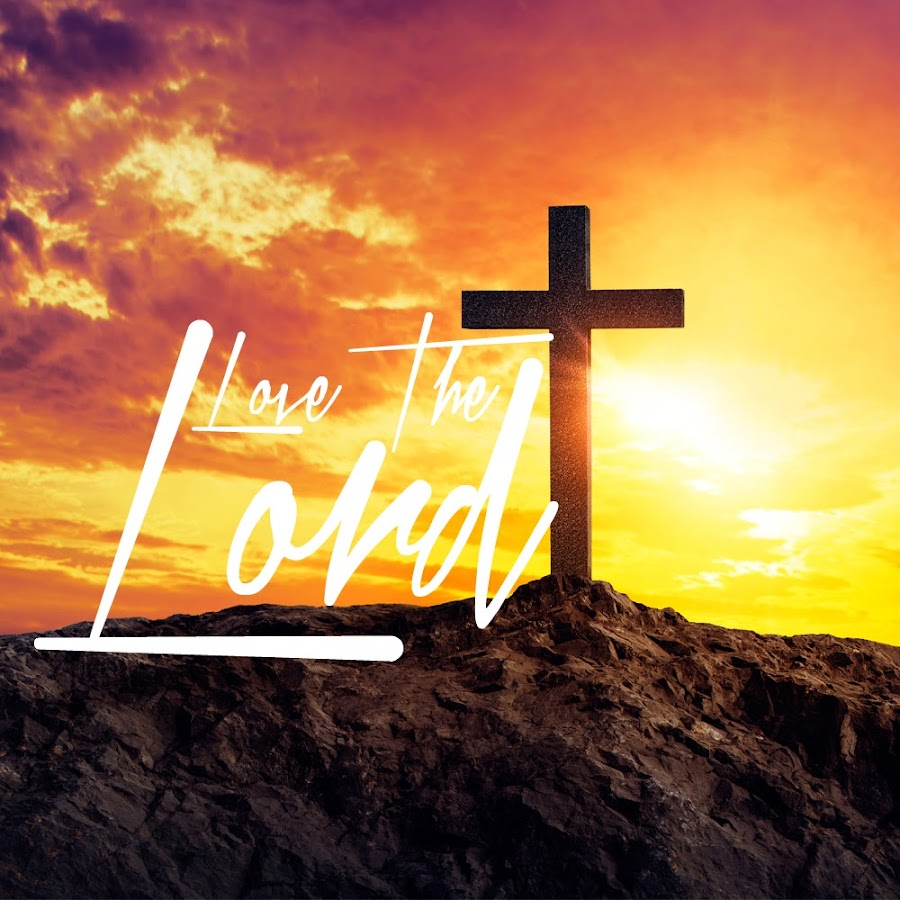Deuteronomy 6: The Shema and the Greatest Commandment: Lessons for Applying the Ten Commandments in Your Daily Walk

The greatest commandment1
Introduction: Deuteronomy chapter 6 is one of the most important chapters in the Bible. Here, Moses distilled the Ten Commandments down into one. Jesus later quoted from this chapter when identifying the greatest commandment. If you love the Lord with all your heart, mind, and soul, following the Ten Commandments will come naturally. This chapter also has a special place in the lives of observant Jews. For the last two centuries, observant Jews have been expected to recite a daily prayer at morning and at evening from part of this chapter called the “Shema”. On Yom Kippur, the holiest day of the Jewish calendar, the entire congregation would say it together. It is also the central part of the Jewish prayer book called the Siddur. The three components on the Shema, which are sung in Hebrew, include Deuteronomy 6:4-9; 11:13-19; and Numbers 15:37-41. By Jewish tradition, the first verse a child is taught is the beginning verse of the Shema. Also by Jewish tradition, a person who knew his or her time had come would say the Shema as a final prayer. The lessons in this chapter for a believer have seven components. First, we examine the prelude to the Shema. After giving the Ten Commandments Moses urges believers to act upon God’s Word. If you do, God will bless you. Second, Moses reminds you to place your love for God above all else. Third, Moses urges you to make the Word a visible part of your walk. Fourth, through the Spirit, Moses warns you to always be mindful that your heart is inclined toward evil. Fifth, Moses warns you not to forget your deliverance from bondage when times are good. Sixth, Moses also warns you not to forget your deliverance when times are tough. Finally, Moses urges the people to be righteous by living according to the Law.
1. The Prelude to the Shema: - Be a Doer of God’s Word and Prolong Your Days. Dt. 6:1-3
Prolong your days through obedience. After repeating the Ten Commandments, Moses urged the people to act upon what they had just heard. For those who do, God repeats His prior promise of a prolonged life: “Now this is the commandment, the statutes and the judgments which the Lord your God has commanded me to teach you, that you might do them in the land where you are going over to possess it, so that you and your son and your grandson might fear the Lord your God, to keep all His statutes and His commandments which I command you, all the days of your life, and that your days may be prolonged.” (Dt. 6:1-2). If someone were reading the Bible without breaking between the chapters, the person would notice that Moses had just repeated this exact same promise only a few verses earlier: “So be careful to do what the Lord your God has commanded you; do not turn aside to the right or to the left. Walk in all the way that the Lord your God has commanded you, so that you may live and prosper and prolong your days in the land that you will possess.” (Dt. 5:32-33). God is not promising that you will live to be old if you follow the Law. You could die at any moment. He is instead promising to prolong the length of time you would normally have on Earth. This could be a month, a year, a decade, or longer. It is a promise that you must believe by faith. In heaven, you will learn how much longer of a life God gave you for your obedience. Yet, you must not be motivated by this promise. You must instead obey out of love. This promise should not be too hard to understand. Studies, for example, show that chronic smoking can take on average 10 years off your life. Stress can also take time off your life. Yet, if you doubt God’s promise of a prolonged life, should you expect God to grant it? (Jam. 1:6-7). Could you explain to a non-believer how God might prolong your life through the peace that comes from obeying the Ten Commandments?
Act upon God’s Word. God wants you to study His Word. Yet, He does not want you to merely be filled with head knowledge. He also expects you to act on His Word. For the doers of God’s Word, God promises peace and prosperity, which may or may not take a material form: “O Israel, you should listen and be careful to do it, that it may be well with you and that you may multiply greatly, just as the Lord, the God of your fathers, has promised you, in a land flowing with milk and honey.” (Dt. 6:3). Throughout the Bible, God reminds His people that vows of obedience must be followed by action. e.g., “And the LORD said to me, ‘Proclaim all these words in the cities of Judah and in the streets of Jerusalem, saying, ‘Hear the words of this covenant and do them.”’’ (Jer. 11:6). In case anyone believes that these are relics of the Old Testament, they are repeated even more often in the New Testament: “Why do you call Me, ‘Lord, Lord,’ and do not do what I say?” (Lk. 6:46). “Not everyone who says to Me, ‘Lord, Lord,’ will enter the kingdom of heaven, but he who does the will of My Father who is in heaven will enter.” (Matt. 7:21). “Therefore everyone who hears these words of Mine and acts on them, may be compared to a wise man who built his house on the rock. And the rain fell, and the floods came, and the winds blew and slammed against that house; and yet it did not fall, for it had been founded on the rock.” (Matt. 7:24-25). “[F]or it is not the hearers of the Law who are just before God, but the doers of the Law will be justified.” (Ro. 2:13). “But prove yourselves doers of the word, and not merely hearers who delude themselves.” (Jam. 1:22; see also, Rev. 14:12; 22:14). Are you trying to follow all Ten Commandments each day out of love and devotion, not obligation?
2. The First Part of the Shema: - Love God Above All Else. Dt. 6:4-9.
To choose God’s covenant of blessings over the devil’s counterfeit covenant of coveting, the Shema or “call to worship” begins as a call to love the Lord with all your heart, mind, and soul:
“ 4 Hear, O Israel! The Lord is our God, the Lord is one! 5 You shall love the Lord your God with all your heart and with all your soul and with all your might. 6 These words, which I am commanding you today, shall be on your heart. 7 You shall teach them diligently to your sons and shall talk of them when you sit in your house and when you walk by the way and when you lie down and when you rise up. 8 You shall bind them as a sign on your hand and they shall be as frontals on your forehead. 9 You shall write them on the doorposts of your house and on your gates.” (Dt. 6:4-9).
The Shema: the call to worship. Christians are not under any legalistic obligation to learn Hebrew. Yet, there are a few Hebrew words that believers should at least know. These include the proper names for God and the first six verses of the Shema: “Shema Yis'ra'eil Adonai Elohiym Adonai echad.” (Dt. 6:4). The word “hear” implies the word “obey.” In English, it is the equivalent of starting a message by stating “listen closely.” The word Adonai was a substitute for the word YHWH, which the Jews would not pronounce out of fear that they might mispronounce it and blaspheme God’s name. In Moses’ day, the message was that the God of Israel was and is unique. Unlike the pagans around them, they had only one God. This call to worship is still relevant today. God is competing with many types of potential idols in your life. These include: yourself, money, prestige, power, and the things of the flesh. The Shema is also consistent with the Trinity. The word echod or “one” is also translated as a “union,” “composite one” or a “cluster.” The same word echod is used in Genesis to describe the union of a man and a woman as “one” flesh (Gen. 2:25). Likewise, the word echod is used to describe the “single cluster” of grapes that the Hebrew spies brought back from Israel (Nu. 13:23). Additionally, the word Elohiym is the plural of El, the name for God (Gen. 1:1). Thus, the Jews knew God as a united God without fully understanding what that meant. The mystery of God’s composite nature was fully revealed when the Word became flesh (Jo. 1:1, 14). Christ emptied Himself of His divine form (Phil. 2:7). Yet, He also stated that He is God (e.g., Jo. 8:57; 10:31; 38; 20:28; Col. 1:16-17; Heb. 1:8). Could you explain to a fellow believer how the Shema is still relevant for understanding God?
The greatest commandment2
The greatest commandment: to love the Lord with all your heart, soul, and might. After repeating the Ten Commandments, Moses distilled them down to just one: “You shall love the Lord your God with all your heart and with all your soul and with all your might.” (Dt. 6:5). In Hebrew, the reference to a person’s “heart” also includes their “mind.” (e.g., Zech. 8:17; Dt. 9:4; 2 Sam. 13:33; 2 Kings 23:25; Esth. 4:13; Is. 10:7). Centuries later, a Pharisee lawyer sought to test Jesus. He asked Jesus to name the greatest Commandment (Matt. 22:34). Jesus responded by quoting the second verse of the Shema. Yet, because the word “heart” in Greek does not include the word “mind,” He added the word “mind” when He stated the greatest commandment: “You shall love the Lord God with all your heart, and all your soul and with all your mind.” (Matt. 22:35-38; Mk. 12:29-30; Lk. 10:27; Ex. 20:1-8). If you love God, you will want to keep His commandments out of love and not obligation: “For this is the love of God, that we keep His commandments; and His commandments are not burdensome.” (1 Jo. 5:3). How do you know if you have fully given your heart and mind to God? Jesus explains that the focus of your heart is what you consider to be your “treasure” in life. Do you treasure money, power, prestige, or the flesh more than God? Or, do you love others or yourself more than the things of God?
Teach the Word to your children and others. Your obligation to God does not end with learning and obeying the law out of love. Once you learn the law, He also expects you to teach it to your children and talk about them as a family whenever teaching moments arise throughout the day: “These words, which I am commanding you today, shall be on your heart. You shall teach them diligently to your sons and shall talk of them when you sit in your house and when you walk by the way and when you lie down and when you rise up.” (Dt. 6:6-7). This is a common theme throughout Deuteronomy: “[B]ut make them known to your sons and your grandsons.” (Dt. 4:9-10). “But as for you, stand here by Me, that I may speak to you all the commandments and the statutes and the judgments which you shall teach them, that they may observe them in the land which I give them to possess.’” (Dt. 5:31). “You shall teach them to your sons, talking of them when you sit in your house and when you walk along the road and when you lie down and when you rise up.” (Dt. 11:19). This commandment is also repeated throughout the Old Testament: “Train up a child in the way he should go, even when he is old he will not depart from it.” (Prov. 22:6; Ps. 78:4-6). It is also repeated again in the New Testament: “Fathers, do not provoke your children to anger, but bring them up in the discipline and instruction of the Lord.” (Eph. 6:4). “For though by this time you ought to be teachers, you have need again for someone to teach you the elementary principles of the oracles of God, and you have come to need milk and not solid food.” (Heb. 5:12). Do you look for teaching opportunities throughout the day to teach your children or others God’s Law?
Raise your children to know and follow God’s Word3
3. The Second Part of the Shema -Bind God’s Word to Your Head and Arms. (Dt. 11:13-18).
In the second part of the Shema, Moses again states the blessings or curses that come from whether you follow the Law out of love. To keep their hearts focused on God, Moses also advised the Jews to bind the Law to their heads and forearms:
“13 It shall come about, if you listen obediently to my commandments which I am commanding you today, to love the Lord your God and to serve Him with all your heart and all your soul, 14 that He will give the rain for your land in its season, the early and late rain, that you may gather in your grain and your new wine and your oil. 15 He will give grass in your fields for your cattle, and you will eat and be satisfied. 16 Beware that your hearts are not deceived, and that you do not turn away and serve other gods and worship them. 17 Or the anger of the Lord will be kindled against you, and He will shut up the heavens so that there will be no rain and the ground will not yield its fruit; and you will perish quickly from the good land which the Lord is giving you. 18 “You shall therefore impress these words of mine on your heart and on your soul; and you shall bind them as a sign on your hand, and they shall be as frontals on your forehead. 19 You shall teach them to your sons, talking of them when you sit in your house and when you walk along the road and when you lie down and when you rise up.” (Dt. 11:13-18).

Don’t hide the light of the Word that lies within you. The Law should also be visible to others in your life. In the first part of the Shema, the Jews were told to bind the Law to their foreheads and doors: “You shall bind them as a sign on your hand and they shall be as frontals on your forehead. You shall write them on the doorposts of your house and on your gates.” (Dt. 6:8-9). In the second part of the Shema, Moses again advised them to tie the Law to their foreheads and arms: “You shall therefore impress these words of mine on your heart and on your soul; and you shall bind them as a sign on your hand, and they shall be as frontals on your forehead.” (Dt. 11:18; see also, Ex. 13:9, 16). The container with God’s Word for the doorpost of a believer’s house is called a “mezuzah”. Orthodox Jews still hang them on the doors of their homes today. For those over 13, the head-tefillin (“shel rosh”) is placed above the forehead The hand-tefillin (“shel yad”) is wrapped around the upper arm. It contained the following passages: Ex. 13:1-16; Dt. 6:4-9; and Dt. 11:13-21. Tefillin are not donned on a Sabbath and during the seven major Jewish festivals because observing these holy days was a sufficient sign. For Orthodox Jews today, they are mainly worn on nonreligious days during their morning service. Yet, some wear them all day long as was more common in the past. For some, the tefillin is thought of as a wedding ring for God. Oddly, in paintings or depictions of Jesus, almost none show Him wearing phylacteries or tassels. Yet, because Jesus kept the Law, He would have worn both phylacteries and tassels (Dt. 6:8, 11:18; Nu. 15:38). Jesus did not criticize those who wore them as being misguided. He instead criticized those who wore excessively long phylacteries or tassels merely to be noticed by others (Matt. 23:5). Jesus, however, also fulfilled the Law (Matt. 5:17-18). He is the mezuzah or Word for the doorposts to heaven (Jo. 10:9; Ps. 118:19-22). Jesus’ name will also be the tefillin written on the heads of the 144,000 Jews saved in the end times will have “His name [Christ] and the name of the Father [were] written in their foreheads.” (Rev. 14:1). Also, there will come a day when believers will be asked to wear a counterfeit tefillin. It will be “666”, the mark of the beast (Rev. 13:16-18). This might be a chip or a bar code. Today, these verses also have a more practical meaning in your life. God’s Word in your life should be visible to others in your life and in your home (Matt. 5:15).
4. The Third Part of the Shema: - Set Yourself Apart from the Evil Desires in Your Heart. Nu. 15:37-41.
The third section of the Shema, Moses told the people to wear tassels to remind them to keep their evil hearts set on heaven:
“37 The Lord also spoke to Moses, saying, 38 “Speak to the sons of Israel, and tell them that they shall make for themselves tassels on the corners of their garments throughout their generations, and that they shall put on the tassel a cord of blue at each corner. 39 It shall be a tassel for you to look at and remember all the commandments of the Lord, so as to do them and not follow after your own heart and your own eyes, after which you played the harlot, 40 so that you may remember to do all My commandments and be holy to your God. 41 I am the Lord your God who brought you out from the land of Egypt to be your God; I am the Lord your God.” (Nu. 15:37-41).
Let the Holy Spirit help you remember that you are set apart. God had the people circumcise their foreskins and then their hearts as their symbol of identity with Him (Dt. 10:16; 30:6). Yet, He also had the Jews wear distinctive clothes to remind them that they were set apart for Him. The Jews were told to wear rectangle shaped garments with a hole for their head and with tassels on each corner (Nu. 15:38). The tassels were blue, the color of heaven, so that their thoughts would dwell on Him. They also symbolized having the Law tied to each part of their lives. The tassels were necessary to remind the people of the Ten Commandments and that their hearts were inclined toward evil: “do them and not follow after your own heart and your own eyes, after which you played the harlot.” (Nu. 15:39; Jer. 17:9; Matt. 15:19). Because Jesus fulfilled the Law, He wore tassels as well. The woman who touched Jesus on his garment to be healed most likely grabbed Jesus’ tassel (Mk. 5:28; Lk. 8:44). In addition to wearing phylacteries and tassels, the Jews also did other things to separate themselves from the world and to dwell on God. They were told not to mix fabrics (Lev. 19:19). They also could not cut the “corners” of their heads or their beards in mourning “for the dead.” (Lev. 19:27-28; 21:4-5; Dt. 14:1-2). Orthodox Jews today also wear a yarmulke to remind themselves of God. Christians are also told to be holy (1 Pet. 2:9). Yet, instead of tassels, God has left us with the Holy Spirit to convict us of our sin and to remind us at all times that we are tied to God and set apart for Him (Jo. 14:16-17, 26).
5. Postscript Part I: Remember Your Deliverance in Times of Plenty. Dt. 6:10-15.
Don’t forget the bondage that you were freed from. God promised the Jews that He would soon bless them with a land filled with cities, homes, wells, farm lands, vineyards, and orchards that they did not build, earn, or deserve. They were not to forget their deliverance once they received these blessings: “Then it shall come about when the Lord your God brings you into the land which He swore to your fathers, Abraham, Isaac and Jacob, to give you, great and splendid cities which you did not build, and houses full of all good things which you did not fill, and hewn cisterns which you did not dig, vineyards and olive trees which you did not plant, and you eat and are satisfied, then watch yourself, that you do not forget the Lord who brought you from the land of Egypt, out of the house of slavery.” (Dt. 6:10-12). The most dangerous time for a believer is when things are going well. Because a believer’s heart has evil in it (Nu. 15:39; Jer. 17:9; Matt. 15:19), it is sadly natural for believers to walk away from their faith when a believer no longer feels the need for God (Prov. 30:8-9). Throughout the world, church attendance has dropped as countries have grown richer. America is now sadly catching up with that trend. Has prosperity and God’s blessings pulled you off your walk?
Remember the price paid for your freedom by staying free from the bondage of sin. Part of giving thanks for your deliverance is fearing God and keeping yourself free from the idols of the world: “You shall fear only the Lord your God; and you shall worship Him and swear by His name. You shall not follow other gods, any of the gods of the peoples who surround you, for the Lord your God in the midst of you is a jealous God; otherwise the anger of the Lord your God will be kindled against you, and He will wipe you off the face of the earth.” (Dt. 6:13-15). The fear of God is to hate evil: “The fear of the LORD is to hate evil; pride and arrogance and the evil way and the perverted mouth, I hate.” (Prov. 8:13). Today, our idols are wealth, power, the flesh, drugs, alcohol, and ourselves: “Therefore consider the members of your earthly body as dead to immorality, impurity, passion, evil desire, and greed, which amounts to idolatry.” (Col. 3:5). “For this you know with certainty, that no immoral or impure person or covetous man, who is an idolater, has an inheritance in the kingdom of Christ and God.” (Eph. 5:5). “The idols of the nations are but silver and gold, the work of man's hands.” (Ps. 135:15). Have you used God’s blessings to focus on yourself, getting rich, and the things of the flesh?
6. Postscript Part II: Do Not Complain When Times are Tough. Dt. 6:16
Don’t test the Lord through murmuring and disobedience. The Jews were also warned that they could break the Ten Commandments by testing or complaining to God in bad times. This is the opposite of loving God with all your heart, soul, and mind: “You shall not put the Lord your God to the test, as you tested Him at Massah.” (Dt. 6:16). Massah was a reference to the Jews’ constant murmuring during their journey in the wilderness. The Jews had just seen God strike down the Egyptians with ten separate plagues (Ex. Chapters 7-12). Yet, as Pharaoh approached them at the sea, they were terrified and cried out to Moses: “Was it because there were no graves in Egypt that you brought us to the desert to die? It would have been better for us to serve the Egyptians than to die in the desert!” (Ex. 14:12). Yet, God did not punish them at all. Instead, He saved them by parting the Sea and crushing Pharaoh’s troops (Ex. 14:21-30). After watching God crush their enemies, the Jews forgot about Him after only three days from the sea when they found no water. The people were anxious about their water supply as they came to an oasis in the desert called Marah. To their disappointment, the waters of Marah were bitter and undrinkable (Ex. 15:23). They then grumbled at Moses for bringing them there. God then transformed the waters of Marah to provide drinking water (Ex. 15:25-27). Only a month after they had left the bondage of Egypt, they then reminisced about their “pots of meat.” (Ex. 16:3). Moses warned that their grumbling was a sin against God (Ex. 16:8). Yet, rather than punishing them, God gave them quail and manna (Ex. 16:12-15). But they then violated God’s commands by trying to horde the manna (Ex. 16:16-21). The Jews then violated His Law by searching for manna on the Sabbath (Ex. 16:22-30). Days later, the Jews camped at a place without fresh water and immediately complained to Moses: “Why, now, have you brought us up from Egypt, to kill us and our children and our livestock with thirst?” (Ex. 17:3). Rather than punishing the Jews, God made water come out from a rock at Horeb (Ex. 17:6). Moses named the place Massah (testing) and Meribah (quarreling) because they tested the Lord saying: “Is the Lord among us?” (Ex. 17:7). Although the Jews were worthy of punishment, God did not punish them at all. Are you complaining to God about your problems and the things you don’t have? Or, are you giving thanks for all that God has given you?
7. Postscript Part III: The Law Will Protect You From Bondage. Dt. 6:17-25.
Don’t accommodate the evil things of the world in your walk. God wanted the people to stay free from bondage by keeping both the Ten Commandments and the statutes which Moses would give shortly. If the Jews did this, God promised both to give the Jews peace and victory over their enemies: “You should diligently keep the commandments of the Lord your God, and His testimonies and His statutes which He has commanded you. You shall do what is right and good in the sight of the Lord, that it may be well with you and that you may go in and possess the good land which the Lord swore to give your fathers, by driving out all your enemies from before you, as the Lord has spoken.” (Dt. 6:17-19). If you follow God’s Law out of love, Jesus also promises you peace (Phil. 4:7). If you follow His Law out of love, you also have no reason to fear evil (Ps. 23:4).
God has power to deliver you from your enemies and your bondage. God wants you to remember that when you follow the Ten Commandments and the statutes that follow it out of love, the Holy Spirit has the power to set you free from any form of bondage: “When your son asks you in time to come, saying, ‘What do the testimonies and the statutes and the judgments mean which the Lord our God commanded you?’ then you shall say to your son, ‘We were slaves to Pharaoh in Egypt, and the Lord brought us from Egypt with a mighty hand.” (Dt. 6:20-21). A believer in Christ is a new creation (2 Cor. 5:17). Are you renewing your mind with the Spirit each day to stay free from bondage? (Rom. 12:2). Are you following the Ten Commandments to stay protected from the Devil?
Be righteous both through faith in Christ and by following the Law out of love. Finally, Moses concludes by urging the Jews to be righteous through faith-based obedience to the Law: “Moreover, the Lord showed great and distressing signs and wonders before our eyes against Egypt, Pharaoh and all his household; He brought us out from there in order to bring us in, to give us the land which He had sworn to our fathers’ So the Lord commanded us to observe all these statutes, to fear the Lord our God always for our good and for our survival, as it is today. It will be righteousness for us if we are careful to observe all this commandment before the Lord our God, just as He commanded us.” (Dt. 6:22-25). Today, the righteousness that brings salvation comes from your faith in Christ and not by following the Law (Phil. 3:9). Yet, you are also to be righteous by living as the Law is written out of love, not obligation (Phil. 3:6; Ro. 10:5). If you are intentionally breaking God’s Law, how grateful are you for your deliverance?


